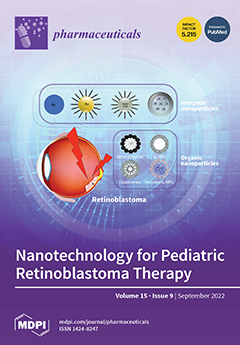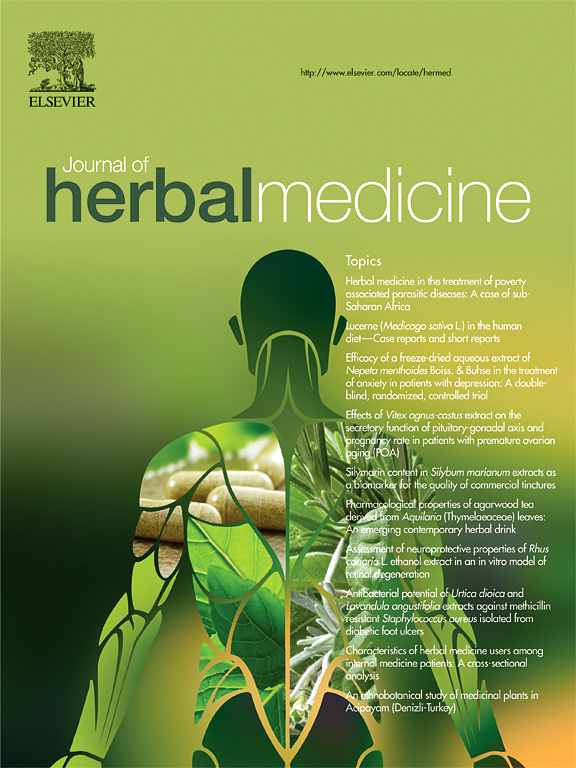Gingivitis
How to submit an article:
- Registered users can submit any published journal article that has a unique DOI (Digital Object Identifier) name or link to Research Hub.
- For example, you can paste the full DOI link:
https://doi.org/10.1109/5.771073or just the DOI name:10.1109/5.771073into the field above and click submit. - The person who is first to submit a valid article to Research Hub will forever be credited for it, and every article submission earns you +6 Research Points.
Related Topics
Published research studies are articles that present the findings of original research that has undergone a peer-review process and has been made publicly available in scholarly journals, books or other media.

Exploring the Clinical Applications of Lemongrass Essential Oil: A Scoping Review
2024 Jan 25 Pharmaceuticals Kusuma IY, Perdana MI, Vágvölgyi C, Csupor D, Takó M
Review Article Lemongrass Oil Dandruff Gingivitis Periodontitis LemongrassLemongrass essential oil can effectively treat periodontitis, gingivitis, oral malodour, skin aging, and dandruff, and it is comparable to certain established treatments.

The Effect of Green Tea on plaque and gingival inflammation: A systematic review
2020 Jun Journal of Herbal Medicine Gartenmann SJ, Steppacher SL, von Weydlich Y, Heumann C, Attin T, Schmidlin PR
Systematic ReviewGreen tea catechins-containing mouthwash may potentially be a practical alternative to chlorhexidine due to its efficacy in plaque reduction and minimal side effects.
Research insights are moderated by the Research Hub team and offer an at-a-glance overview of interesting research findings.

2024 Pharmaceuticals
Lemongrass essential oil can effectively treat periodontitis, gingivitis, oral malodour, skin aging, and dandruff, and it is comparable to certain established treatments.
Review Article Dandruff Lemongrass Lemongrass Oil Periodontitis
Exploring the Clinical Applications of Lemongrass Essential Oil: A Scoping Review
Kusuma IY, Perdana MI, Vágvölgyi C, Csupor D, Takó M

2020 Journal of Herbal Medicine
Green tea catechins-containing mouthwash may potentially be a practical alternative to chlorhexidine due to its efficacy in plaque reduction and minimal side effects.
Systematic Review
The Effect of Green Tea on plaque and gingival inflammation: A systematic review
Gartenmann SJ, Steppacher SL, von Weydlich Y, Heumann C, Attin T, Schmidlin PR
Review Articles
Review articles summarise and critically evaluate the current state of research on a specific topic or field by synthesising multiple primary research studies.

Exploring the Clinical Applications of Lemongrass Essential Oil: A Scoping Review
2024 Jan 25 Pharmaceuticals Kusuma IY, Perdana MI, Vágvölgyi C, Csupor D, Takó M
Review Article Lemongrass Oil Dandruff Gingivitis Periodontitis LemongrassLemongrass essential oil can effectively treat periodontitis, gingivitis, oral malodour, skin aging, and dandruff, and it is comparable to certain established treatments.

The Effect of Green Tea on plaque and gingival inflammation: A systematic review
2020 Jun Journal of Herbal Medicine Gartenmann SJ, Steppacher SL, von Weydlich Y, Heumann C, Attin T, Schmidlin PR
Systematic ReviewGreen tea catechins-containing mouthwash may potentially be a practical alternative to chlorhexidine due to its efficacy in plaque reduction and minimal side effects.
Clinical Trials
Clinical trials are research studies that involve people and are conducted to evaluate the safety and efficacy of new treatments or interventions, such as drugs, medical devices, or behavioural therapies.
Study Protocols
Published study protocols are detailed plans that outline the objectives, methodology, statistical analyses, and organisation of a research study that have been made publicly available for others to review and use as a reference.
Presentation Slides

Review Article
Lemongrass essential oil can effectively treat periodontitis, gingivitis, oral malodour, skin aging, and dandruff, and it is comparable to certain established treatments.
Kusuma IY, Perdana MI, Vágvölgyi C, Csupor D, Takó M

Systematic Review
Green tea catechins-containing mouthwash may potentially be a practical alternative to chlorhexidine due to its efficacy in plaque reduction and minimal side effects.
Gartenmann SJ, Steppacher SL, von Weydlich Y, Heumann C, Attin T, Schmidlin PR
Executive Summary
Write an executive summary in the form of a blog article on the topic of "Research into Chinese medicine treatment for Gingivitis" summarising the research below and using language that can be easily understood by patients and avoiding medical jargon using a professional and caring tone of voice.
Write an executive summary in the form of a blog article on the topic of "Researched Chinese medicine treatments for Gingivitis" summarising the research below in an objective and easy to understand way, and using language that can be easily understood by patients. Group the article into Chinese medicine treatments first, followed by nutrition and other treatments. Avoid using medical jargon and use a professional and caring tone of voice.
Write me a concise but easy to understand executive summary on the topic of "Chinese medicine treatments for Gingivitis" based on the following research that I will give you. Your summary should be 2 paragraphs long in Australian English spelling and include references to the studies.
A Review Article published in 2024 in the journal Pharmaceuticals found that Lemongrass essential oil can effectively treat periodontitis, gingivitis, oral malodour, skin aging, and dandruff, and it is comparable to certain established treatments. The methodology used in the research followed a scoping review design, which was aimed at identifying, summarizing, and synthesizing existing literature related to the clinical applications of lemongrass essential oil. Three databases, namely PubMed, Web of Science, and Scopus, were utilized, following the PRISMA-ScR guidelines, to find articles published within approximately a 10-year timeframe. The results of the review suggest that patients have received noticeable therapeutic benefits from treatments that were primarily administered oromucosally and topically. It can be deduced that the efficacy of lemongrass essential oil in treating periodontitis, gingivitis, and oral malodour is similar to that of chlorhexidine and doxycycline. Moreover, the oil has demonstrated potential in treating skin conditions such as pityriasis versicolor, preventing skin aging, and having anti-dandruff effects. The diverse range of applications of the oil and its efficacy when compared to established treatments highlight its potential for clinical applications.
A Systematic Review published in 2020 in the journal Journal of Herbal Medicine found that Green tea catechins-containing mouthwash may potentially be a practical alternative to chlorhexidine due to its efficacy in plaque reduction and minimal side effects. The methodology involved an exhaustive literature review of several electronic databases, such as CINAHL, Cochrane Library, MEDLINE, PubMed and Scopus, up until January 2017. This review adhered to the PRISMA criteria, centring the research question around the impact of green tea catechins-containing mouthwash on plaque accumulation and gingival inflammation in patients with gingivitis. Out of the 187 titles identified this way, five were fit for meta-analysis, the subject matter primarily revolving around an Asian population. The results indicated that both green tea and chlorhexidine (CHX) significantly outperformed a placebo in reducing Plaque Index (PI), with no substantial contrast between the CHX and green tea groups, both in terms of the endpoint and the change from the beginning of the study to its conclusion. However, only minor side effects were associated with the green tea mouthwash. Contrarily to chlorhexidine, this aspect might make green tea mouthwash more suitable for prolonged use. Despite some heterogeneity in the data and potential bias risks, green tea mouthwash remains an interesting, viable alternative worth considering.
Moderation Tools
Topic
Sign In
Users not signed in are limited to viewing the 5 most recent items of content.